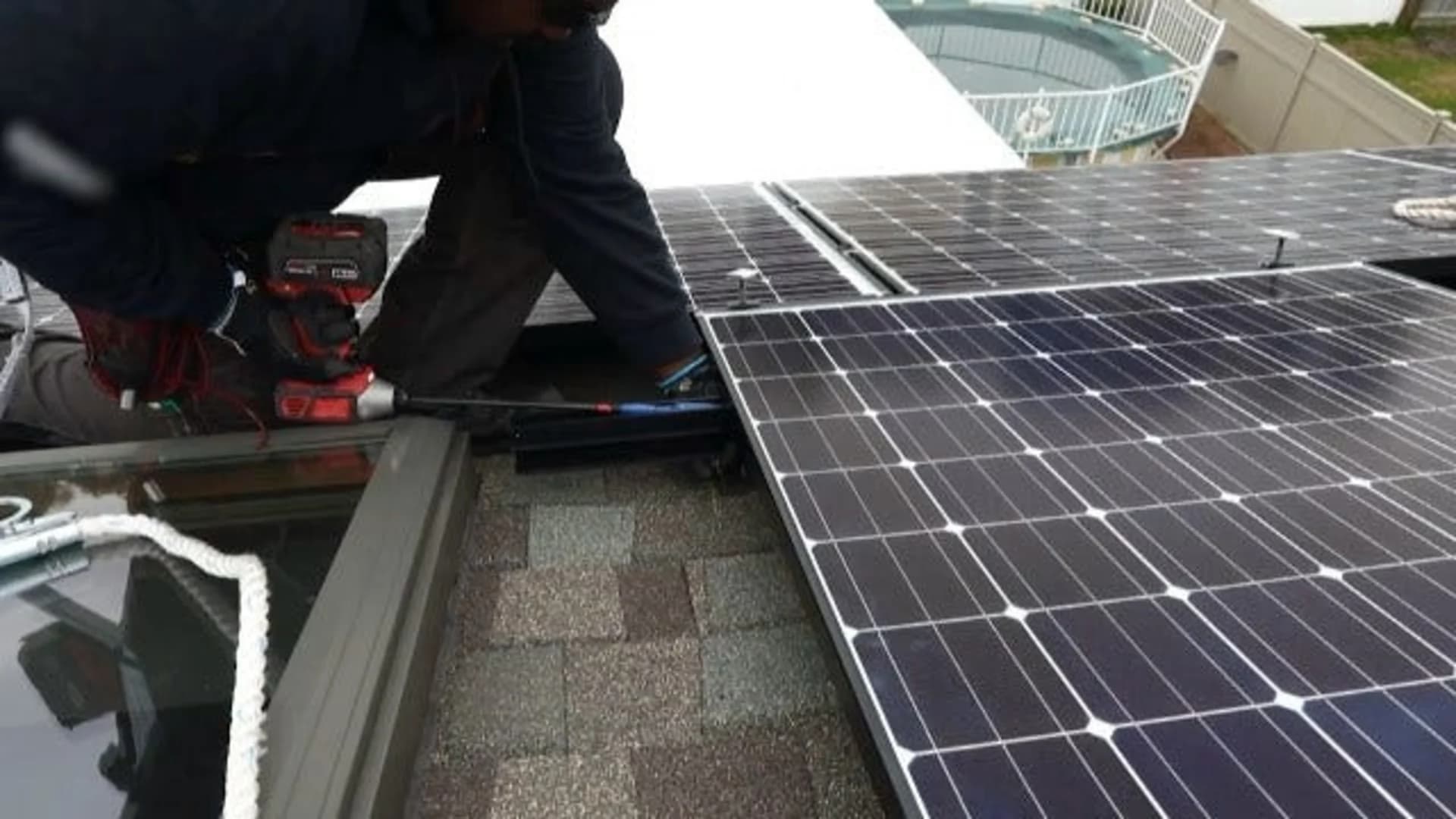
A Newsday/News 12 investigation found that many Long Island solar panel contracts include fine print that could make it difficult to remodel or sell a home.
Homeowner Barry Geller was sold on a rooftop solar panel system after seeing a Super Bowl ad where NRG Home Solar promised big savings on electric bills.
For a while it seemed like a good deal, until one day he tried to get a home improvement loan to extend his kitchen. That was when he got some bad news from the bank.
“The bank called me and said there was a lien on my house,” said Geller. “Right away, I was thinking ‘for what and for who?’ And when they said it was solar company, I said ‘Really? Why?”
It turned out the NRG filed a Uniform Commercial Code, or UCC – a document that prevented him from selling or refinancing his home unless he got the company’s approval first.
Solar leasing firms say UCCs are necessary to protect their investment. Records show it costs about $35,000 to put a system on a customer’s house.
But critics like Riverhead lawyer Sean Walter say UCCs are a ticking timebomb for homeowners and a questionable tactic.
“They say it’s an interest in the panels, but the reality is they know that it’s locking up the house and you’re not going to be able to sell your house or do anything without dealing with them. They know it,” he told News 12.
At the Suffolk County clerk’s office, Chris Como hears complaints almost every day from unhappy solar homeowners looking to get rid of the UCC attached to their property.
“We generally hear from the homeowner once it’s brought to their attention that they have to do something with this, and generally they don't have a knowledge about it because it’s not something they were apprised of,” says Como.
NRG no longer does business on Long Island. But Vivint Solar, another solar leasing firm, says it’s not their intention to interfere with a homeowner’s rights.
“We do not put liens on homeowners’ houses. The UCC simply defines who owns the system. If there’s ever any miscommunication, which there sometimes is with the lender, a two-minute call and we’ve got it cleared up,” says Chance Allred, of Vivint Solar.
Geller says it took him months to get things settled with his solar company.
“Everybody knows why they don’t tell you. Because if they tell you that they’re putting a lien on your house, you would tell them that you don’t want their panels,” he says.
There are plenty of homeowners who are satisfied with solar panels they bought or leased, but there has been enough complaints about ripoffs that the New York State Attorney General’s office says it’s now investigating.
More from News 12
0:52

Man accused of killing two teens in crash disabled safety features on car
2:40

STORM WATCH: Steady rain Friday morning, nearby coastal storm early next week

More than 240 Nassau Police Department members set to retire next month
1:17

Islanders return from NHL's Olympic break
0:47

Man arrested for knife attack at Lindenhurst apartment complex
1:54
